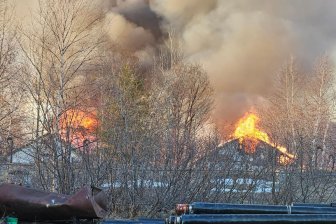Who is the largest group of registered voters in the coming local elections?

It’s not business voters, nor is it labour voters. It’s not Liberal, Conservative, NDP, or Green voters. It’s not Baby Boomer voters and it’s not Millennial voters.
It’s the non-voters.
In most municipalities in B.C., those who skip the polls will outnumber those who show up to vote.
READ MORE: B.C. municipal election digest 2018 — this week’s top stories
In 2014, only 43 per cent of registered Vancouver voters showed up to vote compared with 57 per cent who were busy doing more important things between the hours of 8 a.m. to 8 p.m. on election day, not to mention advance voting periods.
In fact, Vancouver was tops among B.C.’s larger cities. For example, Surrey, Prince George, Kamloops, and Richmond were all about one-third (33 per cent), while Burnaby was barely one-quarter (26 per cent).
COMMENTARY: A surprise exit opens up Vancouver’s mayoral race, Mike McDonald says
Some places have higher turnout rates, but they are the exception. Anmore (54 per cent) and Bowen Island (65 per cent) were the only places in Metro Vancouver to top 50 per cent, joining only 32 other municipalities province-wide to have more voters than non-voters. Tiny Zeballos was tops in B.C. with 89 of its 102 voters making it to the polls for an 87 per cent turnout rate. Zeballogonians should be teaching civic courses to the rest of us.
Strangely, for a level of government that is “closer to the people,” it has lower turnout than provincial and federal elections. Looking at Vancouver, just under 180,000 voted in the 2014 local election, compared to an estimated 260,000 who voted in the 2017 B.C. election, and over 315,000 who voted in the 2015 federal election. Gregor Robertson won with less than one in five of Vancouver’s 470,000-plus eligible voters voting for him, and received far fewer votes than Justin Trudeau’s and John Horgan’s Vancouver candidates. He also received fewer votes than Christy Clark’s candidates city-wide. While it makes no legal difference, wouldn’t it serve the city’s interests for its mayor and council to have a stronger democratic mandate?

ABOVE: This graph shows how non-voters outnumbered supports of municipal parties in the 2014 Vancouver municipal election.
So, given higher turnouts federally and provincially, we know then people are perfectly capable of voting. Why do they tune-out during local elections?
Local candidates don’t get as much publicity and there isn’t as much money spent on advertising and getting the vote out. The issues are, arguably, not as compelling and exciting. Do you want to talk municipal sewage or do you want to talk about the future of Canada? Provincial and federal politics are leader-focused and conflict-driven. They boil down the choices to essential “truths.” Local elections are different. They’re not as emotional, and, therefore, less interesting. “I guess I’ll vote for Boring … if I get around to it.” In many cities, last time, there was not a hot race for mayor, which dampened turnout. But there were still races for councillors and school board trustees.
COMMENTARY: Wave of changes coming in Metro Vancouver municipal politics, Mike McDonald says
If anyone should be motivated to increase voter turnout, it’s the candidates themselves. That’s why you will see some candidates make emotional appeals whether it is “solving the housing crisis” or speaking to issues outside local jurisdiction like “stopping Kinder Morgan.” Voters need a reason to get off the couch and get to the polls — they may get that message over the airwaves, but the most effective way to induce turnout is to receive a personal plea from a candidate or a volunteer. It makes it personal and tangible. It’s no longer an abstract concept — someone is talking to “me.” That’s why the message and the ground game are important. How many people are these campaigns really touching? The ones that talk to the most voters have a much better chance of winning.
Even if the messages seem boring, local government elections are actually very compelling. They’re compelling for your financial security, the services you receive, and the livability of your neighbourhood. They’re compelling because they show that people actually give a damn about their community.
People who run for office are virtually all non-career politicians. There are few full-time gigs in local politics, especially outside the biggest of B.C.’s cities. Local politicians are your neighbours, your insurance agent, or your kid’s soccer coach. This is not a field you enter to make money. People who run for local office must be patient as the wheels of democracy grind slowly on, especially during a six-hour public hearing where people are yelling at them. They are not saints either — they make mistakes and sometimes do boneheaded things. But they are stepping up, and if they can find their way on to the ballot, we should at least be able to find our way to the ballot box.
On Oct. 20, make a plan to vote. It just takes a little multi-tasking — you can go to the kids’ soccer game, walk the dog, grab a coffee, fix the fence, and still schedule 10-15 minutes to vote. You know what? If you’re reading this, you probably are voting. Get on someone else’s case and make sure they vote too.
After you have all that done, tune in to Global BC1 at 8 p.m. on election night for live coverage to see if the voters prevail over the non-voters this time. Now that would be compelling.
Mike McDonald is chief strategy officer with Kirk & Co. and former chief of staff to former B.C. premier Christy Clark. He blogs at Rosedeer.com.



Comments